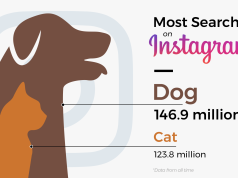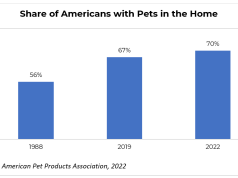7 Nutritional Tips to Help You Keep Your Dog in Top Shape
Ensuring your dog receives proper nutrition is crucial for their overall health and longevity. Here are seven essential tips to help you maintain your dog’s optimal health through a balanced and nutritious diet.
Table of Contents
1. Provide a Balanced Diet
A balanced diet is fundamental to your dog’s health. Ensure their meals contain the right proportions of proteins, fats, carbohydrates, vitamins, and minerals. High-quality commercial dog foods are often formulated to meet these requirements, but it’s essential to choose a product that suits your dog’s age, size, and activity level. Look for foods with whole ingredients like real meat, vegetables, and grains, avoiding those with excessive fillers and artificial additives.
2. Understand Your Dog’s Specific Needs
The nutritional needs of pets vary depending on their breed, size, and life stage. Puppies need more calories and nutrients to support their rapid growth, while senior dogs may require fewer calories and more fibre to aid digestion. Active breeds need more protein and fats to sustain their energy levels. Consult your veterinarian to determine the best diet plan tailored to your dog’s specific needs.
3. Monitor Portion Sizes
Overfeeding is a common issue that can lead to obesity and related health problems such as diabetes, heart disease, and joint issues. Follow the feeding guidelines on your dog food packaging, but adjust portions based on your dog’s activity level, metabolism, and weight. Regularly monitor your dog’s body condition and consult with your vet to make necessary adjustments.
4. Include Fresh Fruits and Vegetables
Adding fresh fruits and veggies to your dog’s diet can give them the essential vitamins and antioxidants they need to stay healthy and happy. Safe options include carrots, blueberries, apples (without seeds), and green beans. These can be used as healthy treats or mixed into their regular meals. However, always avoid toxic foods like grapes, onions, and garlic, which can cause severe health issues in dogs.
5. Ensure Proper Hydration
Water is a vital component of your dog’s diet. Always provide fresh, clean water and ensure they have access to it throughout the day. Staying hydrated is crucial for helping your body with digestion, absorbing nutrients, and overall well-being. If you feed your dog dry kibble, they may need to drink more water compared to dogs on a wet food diet.
6. Avoid Human Foods and Table Scraps
Feeding your dog human food can result in nutritional imbalances and various health problems. Many human foods contain high levels of fat, sugar, and salt, which are not appropriate for dogs. Furthermore, certain foods such as chocolate, caffeine, and specific nuts can be toxic. It is best to stick to dog-specific treats and foods formulated to meet their dietary needs and avoid giving table scraps to prevent unhealthy habits and potential health risks.
7. Regularly Rotate Protein Sources
Introducing a variety of protein sources in your dog’s diet can help prevent food sensitivities and ensure a well-rounded intake of amino acids. Rotate between different meats like chicken, beef, lamb, and fish. This variety not only keeps meals interesting for your dog but also supports muscle maintenance and overall health. Always introduce new proteins gradually to monitor any adverse reactions.
Conclusion
Maintaining your dog’s health through proper nutrition requires attention to detail and a commitment to providing balanced meals. By following these seven nutritional tips, you can ensure your dog remains in top shape, enjoying a long and happy life. Remember, regular veterinary check-ups are essential to monitor your dog’s health and make any necessary dietary adjustments.
For more tips on keeping your pets healthy and happy, visit www.buysellpet.com.
By following these nutritional guidelines, you’ll support your dog’s health and activity. Proper nutrition is key for your furry friend’s well-being.










